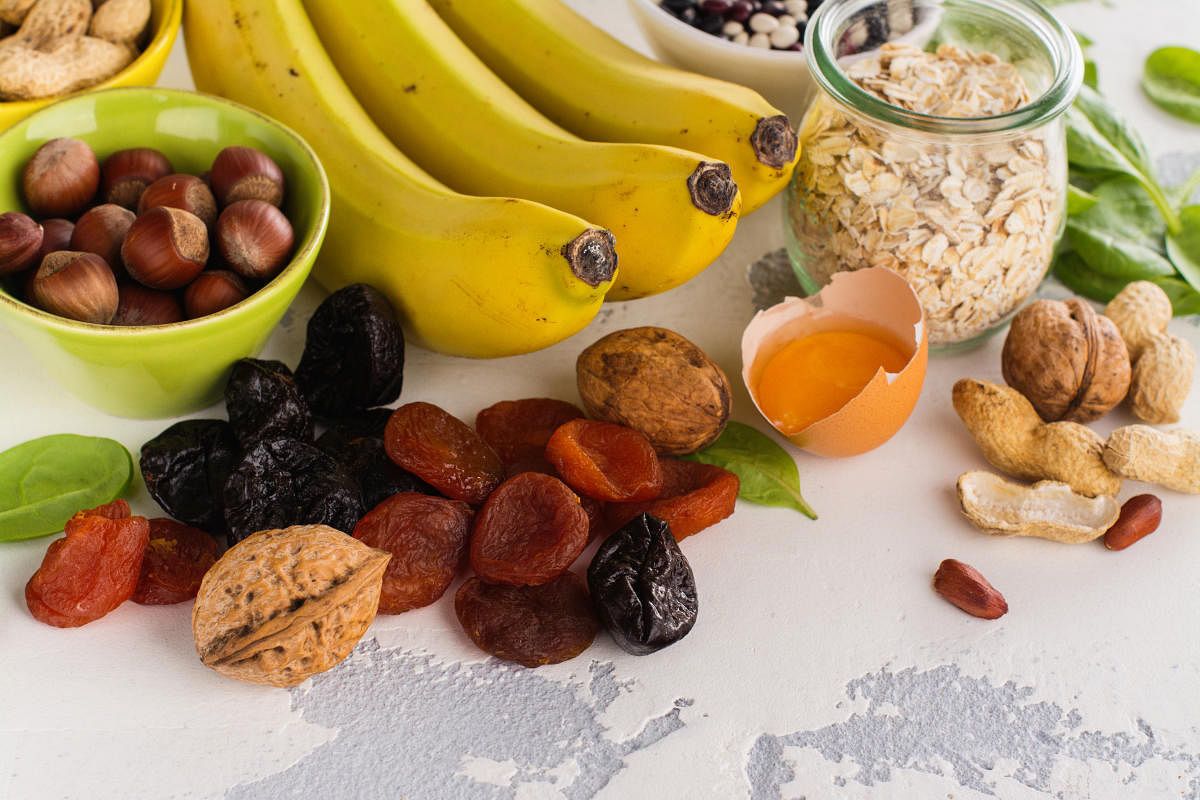Pregnancy is a natural phase of a woman’s life. It is also a phase of confusion about one’s diet and nutrition. A balanced diet with the right set of nutrients and minerals is vital to the woman and the growing baby.
Potassium plays an important role in maintaining the fluid and electrolyte balance in our body. It helps in transmitting nerve impulses, muscle contraction and release of energy from carbohydrates, fat and protein.
The daily recommended dose of potassium in a woman is about 4,700 mg per day. Although this does not increase in pregnancy, regular intake of potassium-rich food is important as the blood volume expands by 50% in pregnancy.
Causes
Low potassium is most often the result of chronic or severe vomiting, diarrhoea, or from using blood pressure medicine. Low potassium can be diagnosed by a routine blood test.
Effects
Initial symptoms are hard to recognise as most of them are common during pregnancy. Low potassium levels in a pregnant woman may present as fatigue, swelling of the feet and ankles due to water retention, dizziness due to lower blood pressure, numbness of fingers and toes, weakness in the muscles, constipation, low mood and in severe cases abnormal heartbeat and depression, confusion or hallucinations.
Treatment
In the initial stages, a potassium-rich diet would suffice. Foods rich in potassium include bananas, tomato, spinach, mushroom, fish, avocados, potatoes etc. Moderate deficiency may need syrups, capsules and tablets. In severe cases, an intravenous drip may be required.
